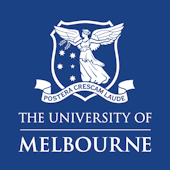Colon cancer is the second highest cause of cancer deaths in Australia after lung cancer. The lifetime risks of contracting colon cancer and dying from this disease are 1 in 10 and 1 in 30, respectively. The aim of the Heath laboratory is to identify novel genes and biological pathways that contribute to colon cancer development.
To do this, the Heath lab embraced the zebrafish as its model organism of choice. Due to their external development and optical transparency, zebrafish larvae provide an excellent model for studying organ growth and dynamic cellular behaviours in real time.
Colon cancer in humans originates in a single layer of cells lining of the bowel, the intestinal epithelium. In zebrafish larvae at 3-5 days of age, the intestinal epithelium is the fastest growing tissue in the organism. At this stage, the developing zebrafish intestinal epithelium exhibits several behaviours that are strikingly similar to those of tumours. These include rapid growth and proliferation, cell movement and the elaboration of a network of blood vessels. The overarching premise of our work is that these properties are likely to be driven by the same genes that fuel colon tumour growth.
To test this hypothesis, the Heath lab used forward genetics and positional cloning to discover genes that are indispensable for the growth and development of the zebrafish intestinal epithelium. The challenge now is to show whether the aberrant expression of these genes contributes to the formation of colon cancer. These studies were performed for many years at the Parkville Branch of the Ludwig Institute for Cancer Research in Melbourne and are continuing now at the Walter and Eliza Hall Institute, where the Heath lab relocated in October 2013.
Experience
-
–presentAssociate Professor, WEHI
Education
-
University of Cambridge, PhD
- Melbourne, Australia
- Website
- Article Feed
- Joined


